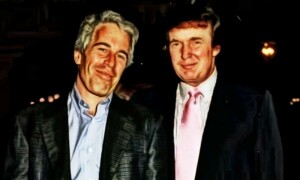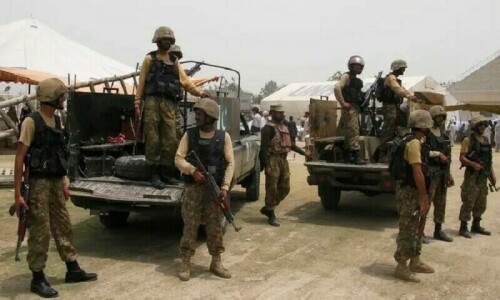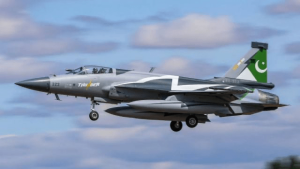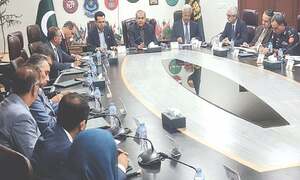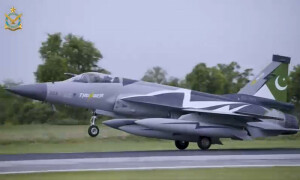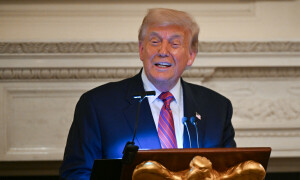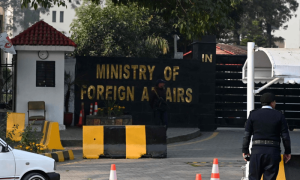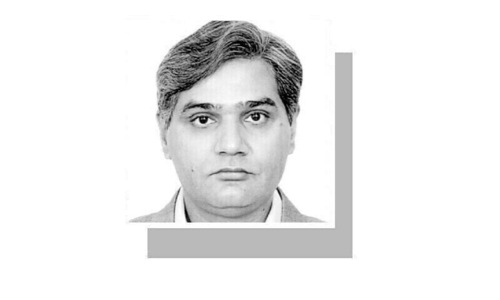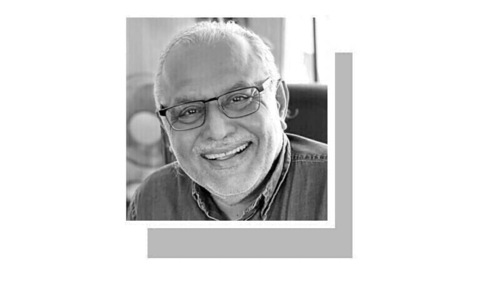The 30th anniversary of the death of Pakistan's arguably most popular prime minister fell yesterday. The judicial murder of Zulfikar Ali Bhutto deprived the nation of a nationalist and a visionary and the Muslim world of a statesman and a strategist par excellence.
Zulfikar Ali Bhutto pulled Pakistan back from imminent anarchy and collapse and infused a new vigour and dynamism in society. He gave the nation a unanimously approved constitution and modernised the armed forces. But his forte was foreign policy where he left a deep imprint. His vast knowledge of history and keen awareness of the developing world's multifaceted problems enabled him to craft policies and strategies which brought unprecedented dividends for Pakistan. Dr Henry Kissinger in his memoirs Years of Upheaval describes Bhutto as a man of extraordinary abilities, capable of drawing close to any country that served Pakistan's national interests.
Pakistan's present-day foreign policy is anchored in the strategic partnership with China, a partnership which has served us well in crises and in our solidarity with the Muslim world, which has stood by Pakistan in difficult times. In these three critical areas, Bhutto's contribution was seminal.
The roots of our strategic relationship with China go back to the India-China clashes in October 1959 in Ladakh. Bhutto was then leading Pakistan's delegation at the UN General Assembly. He was alarmed at President Ayub Khan's offer of joint defence to India. Bhutto felt that only those unlettered in international affairs could believe that such an offer would be accepted. In fact, it was more likely to incur the hostility of China which had so far, despite our membership of anti-communist western alliances, refrained from criticising Pakistan.
Bhutto submitted a proposal to the president that Pakistan review its support for the US position on the question of Chinese representation in the UN and back the legitimate representation of the People's Republic of China. The proposal was accepted. The initiative led to increasing contacts between China and Pakistan and to the conclusion in quick succession of border, civil aviation and trade agreements. These caused some alarm in western circles.
Bhutto argued that it was essential for Pakistan to continue developing friendly relations with China, for if Pakistan were to take provocative steps against China, its position would be perilous when China-US relations improved. Since then Pak-China ties have grown exponentially.
To Bhutto, the 1971 dismemberment had painfully demonstrated the serious difficulty for Pakistan in withstanding an armed assault from a much larger India. It also could not depend on foreign allies or international covenants for its safety and security. Pakistan needed an indigenous arrangement for ensuring its survival. Perhaps he had already made up his mind that Pakistan must acquire nuclear capability. In his 1969 book The Myth of Independence, he wrote that it was 'vital for Pakistan to give the greatest possible attention to nuclear technology, rather than allow itself to be deceived by an international treaty limiting this deterrent to the present nuclear powers.'
Thus were sown the first seeds of the country's nuclear programme.
In typical Bhutto style, marked by vitality and determination, he set himself to the task of acquiring nuclear capability for Pakistan. We will eat grass, he is credited with saying, but we will have the atom bomb. Within a month of his assumption of power, a meeting of nuclear scientists was convened to deliberate not whether but how to achieve the capability.
Previously, Bhutto had in his official capacity sent hundreds of Pakistani scientists to the West for training in nuclear science. He played a pivotal role in the establishment of Pinstech and the conclusion of agreements for the 5MW research reactor at Pinstech and for the 137MW Karachi nuclear power plant. The agreement with France for a reprocessing plant was concluded in 1976.
The same year saw Dr A.Q. Khan entrusted with the task of setting up a uranium plant. Pakistan, for the first time, introduced a resolution in the UN General Assembly calling for the establishment of a nuclear weapons-free zone in South Asia. This put India on the defensive and promoted Pakistan as a non-proliferationist. In August 1976, he rebuffed Kissinger's threat that the next US administration could make a horrible example of a Pakistan bent upon pursuing its nuclear programme. This adroit combination of vision, strategy and diplomacy brought Pakistan to the threshold of nuclear capability in 1977 when Bhutto's government was overthrown and he was sent to the death cell.
The 1973 Arab-Israeli conflict represented a watershed in Pakistan's relations with the Middle East. Pakistan's swift, unconditional and forthright offer of assistance to the Arab states was deeply appreciated. Pakistan's solidarity in the Ramadan war was followed by the holding of the magnificent 1974 Islamic Summit in Lahore. It represented the most forthright and powerful expression of solidarity with Muslim causes, in particular those of the Palestinians.
As we increasingly invoke people's power and struggle to uphold the supremacy of the 1973 Constitution, let us endeavour to preserve and promote the tangible gains in our international relations that Bhutto bequeathed to us. It would be a fitting tribute to a man, for whom dynamism held an immense appeal, that we establish new directions in foreign policy in response to the radically altered global and regional environment.




